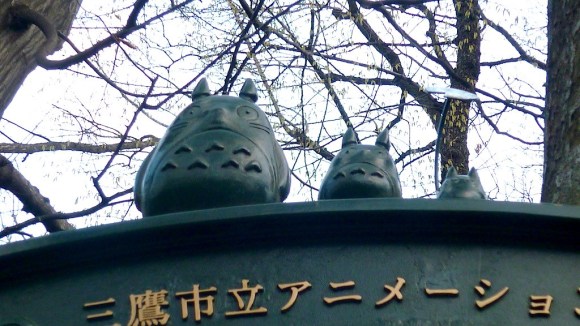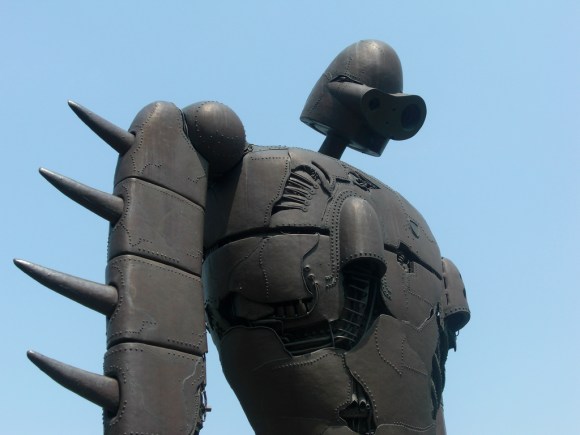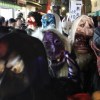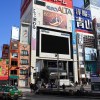
Former Ghibli producer Hirokatsu Kihara gave an interview with Dazed magazine, and some of his insights paint the famous studio in a negative light.
Studio Ghibli is a beloved institution in Japan and abroad and is widely considered the “Disney of Japan. ” It seems that comparison refers not only to the studio’s whimsical creations, but also to a somewhat dysfunctional working environment. That’s according to producer Hirokatsu Kihara – who worked on many of Ghibli’s early classics such as My Neighbor Totoro and Castle in the Sky – who sat down with British pop culture magazine Dazed Digital a few weeks ago to talk about Ghibli and its creations.
While Kihara’s interview was mostly vanilla chit-chat, there were a few nuggets that seem to have caught the attention of Japanese Netizens.
In between talking about his work on The Grudge and more abstract topics like the west’s historical connection to hunting, Kihara landed on a few points that paint a picture of Ghibli Studios as an enterprise that maybe doesn’t value its employees as much as it should:
“Personally, I think that after Kiki’s Delivery Service all the later works have only been the works of Miyazaki and (Isao) Takahata – so they’ve lacked ideas. Each film becomes less and less surprising,” Kihara said, referring to the studio’s famous director and his right hand man. He went on to explain that Ghibli is not as creative a working environment as it ought to be, as there’s very little creative collaboration outside of Miyazaki and Takahata.
It’s worth noting that Kihara doesn’t seem to be attacking Miyazaki personally here, as he mentions, “Miyazaki likes to put everything of himself and everything that he had into one film,” and seems to lay blame for the less-than-ideal working environment on people even higher up than Miyazaki himself, telling Dazed, “People aren’t necessarily looked after or cherished. There’s a sense that everyone is replaceable – even Miyazaki… the people that have worked at Ghibli leave quite fast – and never come back.”
Kihara also made a cryptic statement that may be the most damning one against the company and will surely have Ghibli super fans scouring the company’s roster of executives: “There’s one person there who I won’t name. I find it very scary. He speaks like a Yakuza… and rules it like a politician. However, it should be recognised that he is the one who made the company rich and survive this long. Do you not find it strange that there are no interviews with Ghibli or hardly any articles written on it?”
There’s a lot to unpack here, and it should be pointed out that Kihara’s language throughout the interview isn’t necessarily accusatory or mean-spirited. The whole thing is worth a read and you can check it out here. Neither Ghibli nor Disney are strangers to controversy – in fact, there’s an entire, incredibly long Wikipedia article dedicated to Disney’s foul-ups.
Ghibli, for its part, recently courted controversy when another producer gave some overtly sexist comments to The Guardian, although he later apologized and walked back some of his rhetoric.
Source: Yurukuyaru.com
Feature Image: Flickr/Cliffano Subagio
Images: Flickr/Sébastien Bertrand,


 Ghibli producer provokes backlash for comment regarding abilities of women to direct anime
Ghibli producer provokes backlash for comment regarding abilities of women to direct anime “Let’s leave it to Goro” – The moment Hayao Miyazaki was truly convinced about Ghibli theme park
“Let’s leave it to Goro” – The moment Hayao Miyazaki was truly convinced about Ghibli theme park Studio Ghibli producer dishes the dirt on Hayao Miyazaki, Your Name, and their next big project
Studio Ghibli producer dishes the dirt on Hayao Miyazaki, Your Name, and their next big project “I didn’t ask the old men for any advice” says director of Studio Ghibli’s first CG anime
“I didn’t ask the old men for any advice” says director of Studio Ghibli’s first CG anime Studio Ghibli co-founder and anime director Isao Takahata passes away in Tokyo
Studio Ghibli co-founder and anime director Isao Takahata passes away in Tokyo McDonald’s new Happy Meals offer up cute and practical Sanrio lifestyle goods
McDonald’s new Happy Meals offer up cute and practical Sanrio lifestyle goods Studio Ghibli glasses cases let anime characters keep an eye on your spectacles
Studio Ghibli glasses cases let anime characters keep an eye on your spectacles All-you-can-drink Starbucks and amazing views part of Tokyo’s new 170 meter-high sky lounge
All-you-can-drink Starbucks and amazing views part of Tokyo’s new 170 meter-high sky lounge Super Nintendo World expansion gets delayed for several months at Universal Studios Japan
Super Nintendo World expansion gets delayed for several months at Universal Studios Japan Studio Ghibli releases new action figures featuring Nausicaä of the Valley of the Wind characters
Studio Ghibli releases new action figures featuring Nausicaä of the Valley of the Wind characters McDonald’s Japan releases a pancake pie for new retro kissaten coffeeshop series
McDonald’s Japan releases a pancake pie for new retro kissaten coffeeshop series Kyoto’s 100 Demons yokai monster parade returns!
Kyoto’s 100 Demons yokai monster parade returns! We try out “Chan Ramen”, an underground type of ramen popular in the ramen community
We try out “Chan Ramen”, an underground type of ramen popular in the ramen community More foreign tourists than ever before in history visited Japan last month
More foreign tourists than ever before in history visited Japan last month Completely unmanned 24-hours clothing store found in Tokyo
Completely unmanned 24-hours clothing store found in Tokyo Disney princesses get official manga makeovers for Manga Princess Cafe opening in Tokyo
Disney princesses get official manga makeovers for Manga Princess Cafe opening in Tokyo Starbucks reopens at Shibuya Scramble Crossing with new look and design concept
Starbucks reopens at Shibuya Scramble Crossing with new look and design concept Beautiful new Final Fantasy T-shirt collection on the way from Uniqlo【Photos】
Beautiful new Final Fantasy T-shirt collection on the way from Uniqlo【Photos】 Is the new Shinkansen Train Desk ticket worth it?
Is the new Shinkansen Train Desk ticket worth it? Foreign English teachers in Japan pick their favorite Japanese-language phrases【Survey】
Foreign English teachers in Japan pick their favorite Japanese-language phrases【Survey】 Beautiful Sailor Moon manhole cover coasters being given out for free by Tokyo tourist center
Beautiful Sailor Moon manhole cover coasters being given out for free by Tokyo tourist center Studio Ghibli releases Kiki’s Delivery Service chocolate cake pouches in Japan
Studio Ghibli releases Kiki’s Delivery Service chocolate cake pouches in Japan Japan’s bone-breaking and record-breaking roller coaster is permanently shutting down
Japan’s bone-breaking and record-breaking roller coaster is permanently shutting down New definition of “Japanese whiskey” goes into effect to prevent fakes from fooling overseas buyers
New definition of “Japanese whiskey” goes into effect to prevent fakes from fooling overseas buyers Our Japanese reporter visits Costco in the U.S., finds super American and very Japanese things
Our Japanese reporter visits Costco in the U.S., finds super American and very Japanese things Studio Ghibli unveils Mother’s Day gift set that captures the love in My Neighbour Totoro
Studio Ghibli unveils Mother’s Day gift set that captures the love in My Neighbour Totoro Domino’s Japan now sells…pizza ears?
Domino’s Japan now sells…pizza ears? New Japanese KitKat flavour stars Sanrio characters, including Hello Kitty
New Japanese KitKat flavour stars Sanrio characters, including Hello Kitty One of Tokyo’s most famous meeting-spot landmarks is closing for good
One of Tokyo’s most famous meeting-spot landmarks is closing for good Kyoto creates new for-tourist buses to address overtourism with higher prices, faster rides
Kyoto creates new for-tourist buses to address overtourism with higher prices, faster rides Sales of Japan’s most convenient train ticket/shopping payment cards suspended indefinitely
Sales of Japan’s most convenient train ticket/shopping payment cards suspended indefinitely Sold-out Studio Ghibli desktop humidifiers are back so Totoro can help you through the dry season
Sold-out Studio Ghibli desktop humidifiers are back so Totoro can help you through the dry season Japanese government to make first change to romanization spelling rules since the 1950s
Japanese government to make first change to romanization spelling rules since the 1950s Ghibli founders Toshio Suzuki and Hayao Miyazaki contribute to Japanese whisky Totoro label design
Ghibli founders Toshio Suzuki and Hayao Miyazaki contribute to Japanese whisky Totoro label design Doraemon found buried at sea as scene from 1993 anime becomes real life【Photos】
Doraemon found buried at sea as scene from 1993 anime becomes real life【Photos】 Tokyo’s most famous Starbucks is closed
Tokyo’s most famous Starbucks is closed One Piece characters’ nationalities revealed, but fans have mixed opinions
One Piece characters’ nationalities revealed, but fans have mixed opinions We asked a Uniqlo employee what four things we should buy and their suggestions didn’t disappoint
We asked a Uniqlo employee what four things we should buy and their suggestions didn’t disappoint Princesses, fruits, and blacksmiths: Study reveals the 30 most unusual family names in Japan
Princesses, fruits, and blacksmiths: Study reveals the 30 most unusual family names in Japan Producer clarifies Studio Ghibli’s future, mentions that Miyazaki “would like to make an anime”
Producer clarifies Studio Ghibli’s future, mentions that Miyazaki “would like to make an anime” Studio Ghibli is partnering with Star Wars’ Lucasfilm, it looks like
Studio Ghibli is partnering with Star Wars’ Lucasfilm, it looks like Beardless Hayao Miyazaki has on-brand answer to what he likes about The Boy and the Heron【Video】
Beardless Hayao Miyazaki has on-brand answer to what he likes about The Boy and the Heron【Video】 Poster for Ghibli’s new movie under fire … from the big guru himself!
Poster for Ghibli’s new movie under fire … from the big guru himself! The Place Where Totoro Was Born: New Studio Ghibli book includes art by Hayao Miyazaki’s wife
The Place Where Totoro Was Born: New Studio Ghibli book includes art by Hayao Miyazaki’s wife Studio Ghibli finishes free-to-use image release with 250 from Nausicaa, Laputa, and more
Studio Ghibli finishes free-to-use image release with 250 from Nausicaa, Laputa, and more “Selfish” Studio Ghibli producer apologizes while announcing price reduction for art exhibit
“Selfish” Studio Ghibli producer apologizes while announcing price reduction for art exhibit Trailer for Totoro character designer’s new movie is a sampler of Ghibli’s best themes 【Video】
Trailer for Totoro character designer’s new movie is a sampler of Ghibli’s best themes 【Video】 Hayao Miyazaki appears at Ghibli Park…or does he?
Hayao Miyazaki appears at Ghibli Park…or does he? Hayao Miyazaki Working on Proposed New Anime Feature Film
Hayao Miyazaki Working on Proposed New Anime Feature Film Hayao Miyazaki makes rare video appearance to check out Ghibli Museum’s revamped cafe【Video】
Hayao Miyazaki makes rare video appearance to check out Ghibli Museum’s revamped cafe【Video】 Ghibli theme park wants tickets to be half price of Tokyo Disneyland and Universal Studios Japan
Ghibli theme park wants tickets to be half price of Tokyo Disneyland and Universal Studios Japan Hayao Miyazaki spends retirement from anime by…spending every day at his animation studio
Hayao Miyazaki spends retirement from anime by…spending every day at his animation studio
Leave a Reply